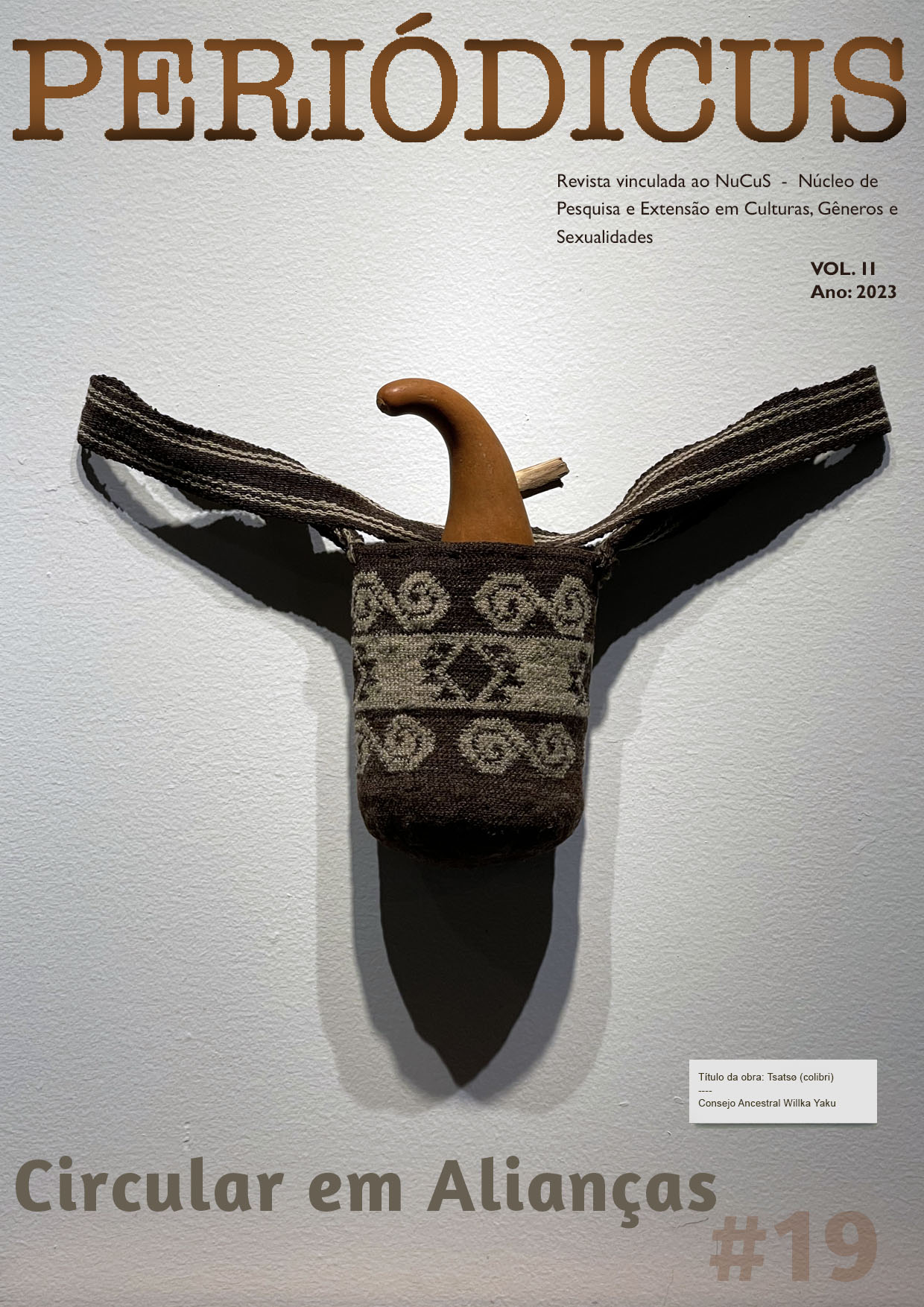The ritualistic of masculinity and violence in The piranhas, by Roberto Saviano
DOI:
https://doi.org/10.9771/peri.v2i19.52491Abstract
This article aims to analyze the masculinities and violence in the novel The piranhas (2019), by the Italian writer Roberto Saviano. Published in 2016, the novel narrates the emergence of a gang of boys in the city of Naples, linked to the Camorra, one of the branches of the Italian mafia. Departing from the theoretical assumptions of Raewyn Connell (2005), Eve Kosofsky Sedgwick (1985), Frederic M. Trasher (1963), Michael Kimmel (2005) and Daniel Welzer-Lang (2001), we intend to analyze the meanings of masculinity experienced inside the homosocial microcosm of the gang, and how they articulate it with violence, territorialism, sexism, homophobia, and the maintenance of hegemonic masculinity.
Downloads
Downloads
Published
How to Cite
Issue
Section
License
Copyright (c) 2023 Claudimar Pereira da Silva

This work is licensed under a Creative Commons Attribution-NonCommercial 4.0 International License.
Autores que publicam nesta revista concordam com os seguintes termos:
Autores mantêm os direitos autorais e concedem à revista o direito de primeira publicação, com o trabalho simultaneamente licenciado sob Licença Creative Commons Attribution Noncommercial que permite o compartilhamento do trabalho com reconhecimento da autoria e publicação inicial nesta revista, sendo vedado o uso com fins comerciais.
Autores têm autorização para assumir contratos adicionais separadamente, para distribuição não-exclusiva da versão do trabalho publicada nesta revista (ex.: publicar em repositório institucional ou como capítulo de livro), com reconhecimento de autoria e publicação inicial nesta revista.
Autores têm permissão e são estimulados a publicar e distribuir seu trabalho online (ex.: em repositórios institucionais ou na sua página pessoal) a qualquer ponto antes ou durante o processo editorial, já que isso pode gerar alterações produtivas, bem como aumentar o impacto e a citação do trabalho publicado (Veja O Efeito do Acesso Livre).







